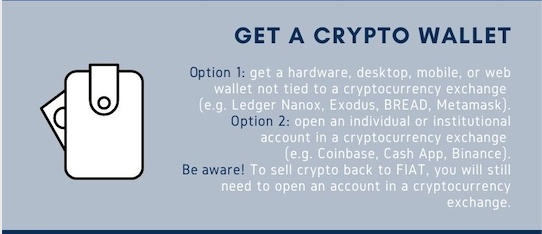Cryptocurrencies are digital currencies that work using blockchain technology. This technology keeps a record of the financial transactions in a decentralized system. Because of this, peers are able to transact directly with one another, as cryptocurrencies don’t require a central institution (like a bank) to validate the transactions that take place. Once a transaction is registered, it cannot be altered randomly. Individuals don’t require approval from a third party, nor do they need to be holders of a bank account to operate with cryptocurrencies, as these can be sent and received simply from a smartphone or a laptop.
The first cryptocurrency – and most popular one – is Bitcoin. Other famous cryptocurrencies, generally denominated as “altcoins” (alternative coins), are Ether, Bitcoin Cash, Monero, and Tether. Monero (also known as a “privacy coin”) allows for fully anonymous transactions, while Tether (also known as a “stable coin”) fixes its price to that of the US dollar, hence protecting the holder against the high level of price volatility affecting most cryptocurrencies.
NGOs can benefit in many ways from receiving funds in cryptocurrencies:
- It allows them to receive transfers from any part of the world,
- For way lower fees and at a much faster pace,
- From entities that may not have access to a bank account, but would like to contribute to the mission of the NGO.





